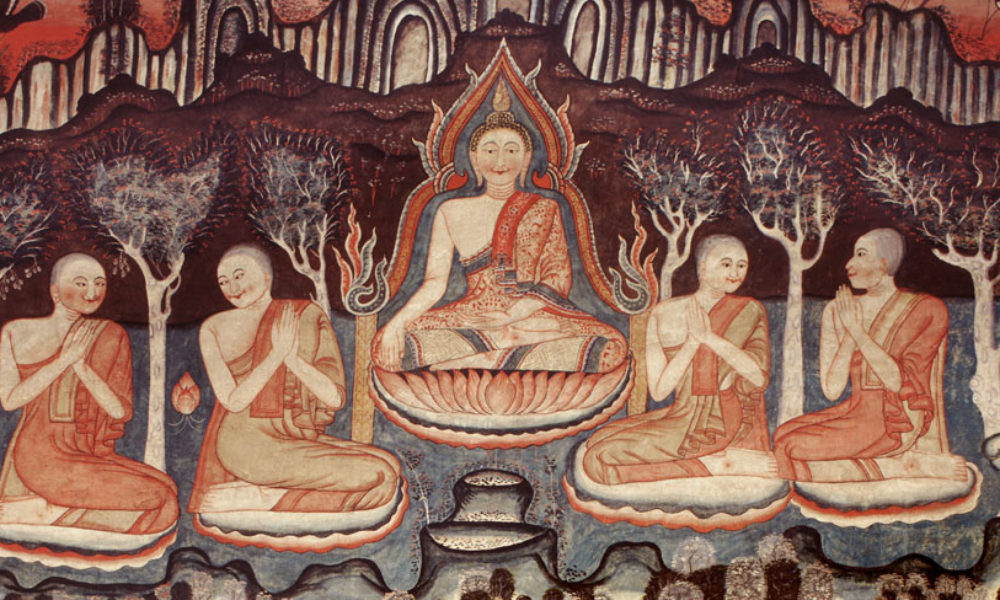Jataka tales are a voluminous body of literature native to India concerning the previous births of Gautama Buddha in both human and animal form.
The word “Jataka” means “birth” in Sanskrit and Pali. These stories are meant to teach ethical and moral values, the importance of kindness, and the consequences of one’s actions. They serve as important teachings in the Buddhist tradition, illustrating the Buddha’s journey towards enlightenment across many lifetimes.
Who is the Buddha?
The Buddha, also known as Siddhartha Gautama, was a spiritual teacher on whose teachings Buddhism was founded. Born into a royal family in the region now known as Nepal, he lived and taught mostly in the northeastern part of ancient India sometime between the 6th and 4th centuries BCE. After achieving enlightenment under the Bodhi tree, he spent the remainder of his life teaching the path of awakening and liberation from suffering.
Revised Story: Wasted Advice
Once upon a time, there was a teacher who devoted himself to meditation and the development of his mind. As he progressed, his reputation for wisdom spread far and wide, attracting those in search of guidance. Impressed by his teachings, 500 individuals decided to become his disciples.
Among these followers was an avid pet lover, unique in his affection for all kinds of animals, desiring to keep them as pets. His attention was once caught by a small, venomous snake foraging for food. Convinced that the snake would make a delightful pet, he crafted a bamboo cage for it, ensuring its safety during his absences. The snake, housed in this bamboo cage, was affectionately named ‘Bamboo’, while the pet enthusiast was fondly referred to as ‘Bamboo’s Father’.
Eventually, the teacher learned of his disciple’s unconventional choice of pet. Concerned, he summoned Bamboo’s Father and inquired about the truth of the matter. Upon receiving an affirmative response, the teacher advised, “It is unsafe to cohabit with a venomous snake. I urge you to release it for your own well-being.”
However, Bamboo’s Father, confident in his bond with the snake, objected, “This creature is like my son; he would never harm me. I cannot bear the thought of parting with him.”
The teacher solemnly warned, “If you keep the snake, it will surely bring about your demise.” Yet, his advice fell on deaf ears.
Some time later, the teacher and his 500 disciples embarked on an expedition to gather fresh fruits, leaving Bamboo securely locked in his cage. Upon their return after several days, Bamboo’s Father realized with distress that the snake had been left unfed. Eager to amend this oversight, he opened the cage to release Bamboo in search of food.
Tragically, as he reached inside, the neglected and famished snake bit him. Bamboo, acting on instinct rather than malice, was unaware of the lethal nature of his venom. Bamboo’s Father, despite his love and intentions, had ignored a crucial warning from his respected teacher.
Minutes after the bite, Bamboo’s Father succumbed to the venom.
The moral of the story highlights a profound truth: The value of a teacher’s guidance is lost on those who choose not to heed their advice




